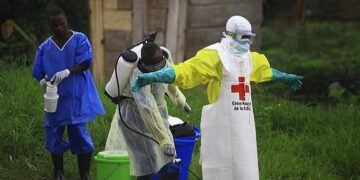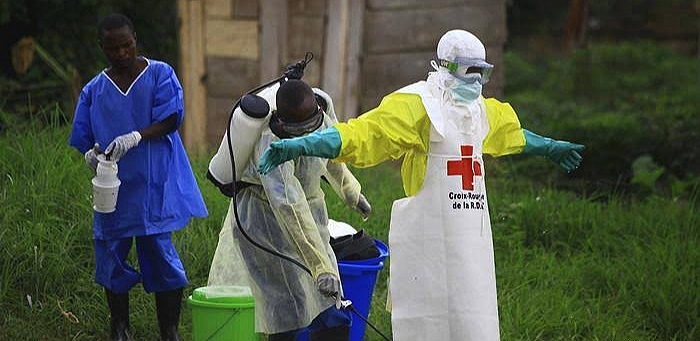By John Ikani
The Nigeria Centre for Disease Control (NCDC) says Nigeria is at high risk of importing Ebola from Uganda.
Ebola virus disease (EVD) is a deadly disease with occasional outbreaks that occur mostly on the African continent.
Scientists do not know where Ebola virus comes from. Based on similar viruses, they believe EVD is animal-borne, with bats or nonhuman primates being the most likely source.
Infected animals carrying the virus can transmit it to other animals, like apes, monkeys, duikers and humans.
Uganda, declared an outbreak of Ebola virus which is caused by the Sudan strain on 20th September 2022. This outbreak has also been confirmed by the World Health Organization (WHO).
Official figures show that there have been 43 confirmed cases since the outbreak was announced two weeks ago, and 10 of these have died.
Health officials said they have traced more than 800 people suspected to have come into contact with those who contracted the disease.
Although the NCDC said there had been no single case of the disease reported in the country, it assessed Nigeria as being a high risk for the importation of the virus due to increased air travels between Nigeria and Uganda, especially through Kenya’s Nairobi Airport, a regional transport hub, and other neighbouring countries that share a direct border with Uganda.
It explained that the likelihood of spread in Nigeria, following importation, was high due to the gatherings and travel associated with politics, the coming Yuletide, as well as other religious gatherings and festivals during the last few months of the year.
The centre said other reasons why Nigeria remains at high risk to include absence of an effective drug for treatment or licensed vaccine for prevention as well as unsafe burials of victims in Uganda.
In addition, the Centre said the extent of the outbreak in Uganda has not yet been ascertained as investigations have shown that some persons may have died with similar symptoms which were not reported to health authorities
Despite this risk assessment, the NCDC stated that Nigeria has the capacity, including technical, human (health workforce), and diagnostic – to respond effectively in the event of an outbreak following successful response to the Ebola outbreak in 2014, as well as improvements in our capacity for health emergency response during the COVID-19 pandemic.
It however urged Nigerian to avoid non-essential travel to locations where the outbreak is reported for the moment; avoid direct contact with blood, saliva, vomit, urine, and other bodily fluids of people with suspected or confirmed EVD; Call 6232 or other dedicated hotlines by State Ministries of Health to ensure all persons with suspected symptoms of EVD described above are promptly taken to designated healthcare facilities by the responsible State Ministry of Health for prompt diagnosis and initiation of supportive treatment; and in suspected and/or confirmed EVD cases, direct physical contact should be avoided by ensuring strict isolation, the use of protective gowns, etc.



































